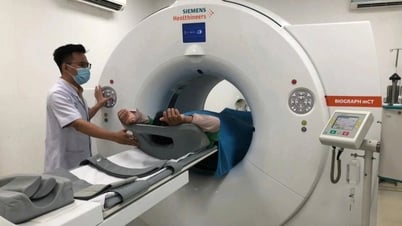Nonsteroidal anti-inflammatory drugs (NSAIDs) such as ibuprofen and naproxen relieve pain and reduce inflammation but can sometimes upset the stomach.
1. What are NSAID pain relievers and anti-inflammatory drugs?
Nonsteroidal anti-inflammatory drugs (NSAIDs) are a class of drugs that relieve pain, reduce inflammation, and reduce fever without a steroid structure. NSAIDs are peripheral analgesics and are not addictive.
NSAIDs account for 8% of prescriptions worldwide and are particularly common in people aged 65 and over.
NSAIDs are used to relieve pain caused by tissue damage, headaches, osteoarthritis, fever, and menstrual cramps. They come in many different forms, including liquids, tablets, capsules, gels, creams, suppositories, and more.
Common over-the-counter NSAIDs : Aspirin, ibuprofen, naproxen sodium.
Common prescription NSAIDs : Celecoxib (celebrex), diclofenac (voltaren), fenoprofen (nalfon), indomethacin (indocin), ketorolac (toradol).

NSAID anti-inflammatory pain relievers are used in the treatment of pain.
2. Does NAIDS medication have side effects?
Like other medications, NSAIDs can cause some side effects. About one-third of people who take NSAIDs experience stomach symptoms such as pain in the upper abdomen, bloating, nausea after meals, fullness, belching, and gastroesophageal reflux.
Most common side effects of NSAIDs: Bloating, heartburn, abdominal pain, nausea, vomiting, diarrhea, constipation, peptic ulcer, dizziness, difficulty concentrating, mild headache.
About 20% of patients with these symptoms do not have any stomach problems. But up to 70% of people who take NSAIDs long term can develop stomach abnormalities such as mucosal erosion, ulcers, and subepithelial bleeding.

Nonsteroidal anti-inflammatory drugs (NSAIDs) can upset the stomach.
3. Why are NSAIDs harmful to the stomach?
NSAIDs can increase the risk of gastrointestinal side effects including gastritis, peptic ulcers, indigestion, nausea/vomiting, diarrhea, even upper gastrointestinal bleeding, gastric/duodenal perforation...
NSAIDs affect the gastrointestinal tract by reducing the levels of prostaglandins that protect the mucosa, causing a higher risk of ulcer formation.
In addition, these drugs also cause increased gastric acid secretion and decreased mucus secretion in the intestinal mucosa, leading to intestinal damage. NSAIDs are not only associated with gastritis, gastric and small intestinal ulcers, but can also cause ulcers in the colon.
4. Who is at high risk of stomach problems when taking NSAIDs?
People at high risk of stomach problems when taking NSAIDs include:
- People who use NSAIDs long term.
- People over 60 years of age are at higher risk of NSAID-related bowel problems.
If a patient needs to use NSAIDs for a long time, they should be taken with a proton pump inhibitor (PPI) or H2 blocker to reduce the risk of gastritis and peptic ulcers.
In addition, patients at high risk of peptic ulcer disease should be tested for H. pylori if they must use NSAIDs for more than two months.
Dr. Hoang Van
Source: https://giadinh.suckhoedoisong.vn/vi-sao-thuoc-giam-dau-chong-viem-lai-gay-dau-da-day-172241015220516381.htm




























![[Photo] Overcoming the heat, practicing to prepare for the parade](https://vphoto.vietnam.vn/thumb/1200x675/vietnam/resource/IMAGE/2025/6/21/b93392e8da8243b8a32040d19590e048)


























![[Maritime News] Wan Hai Lines invests $150 million to buy 48,000 containers](https://vphoto.vietnam.vn/thumb/402x226/vietnam/resource/IMAGE/2025/6/20/c945a62aff624b4bb5c25e67e9bcc1cb)











































Comment (0)